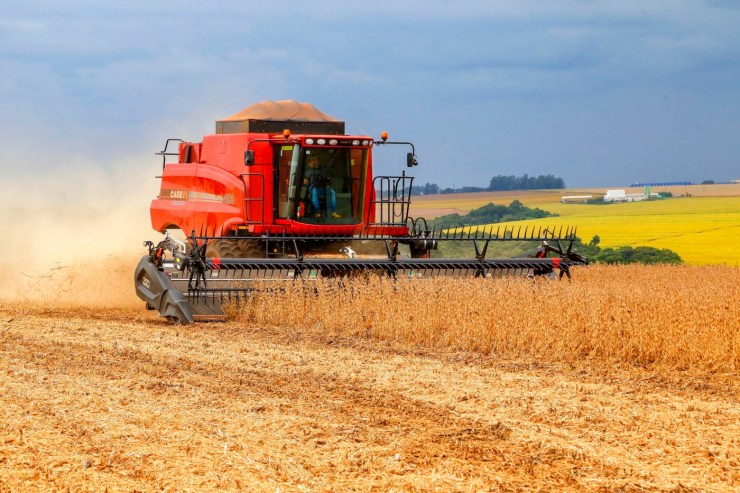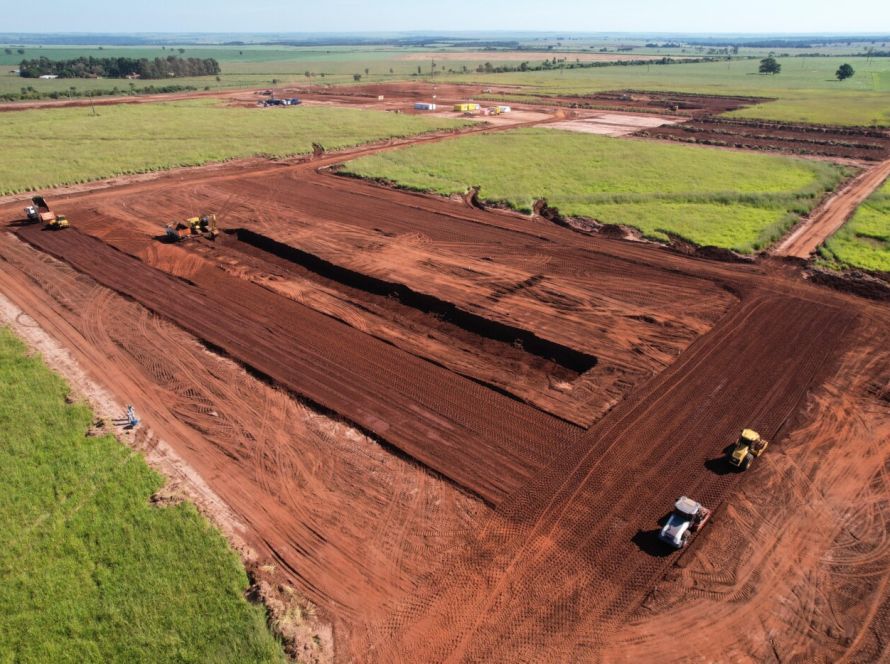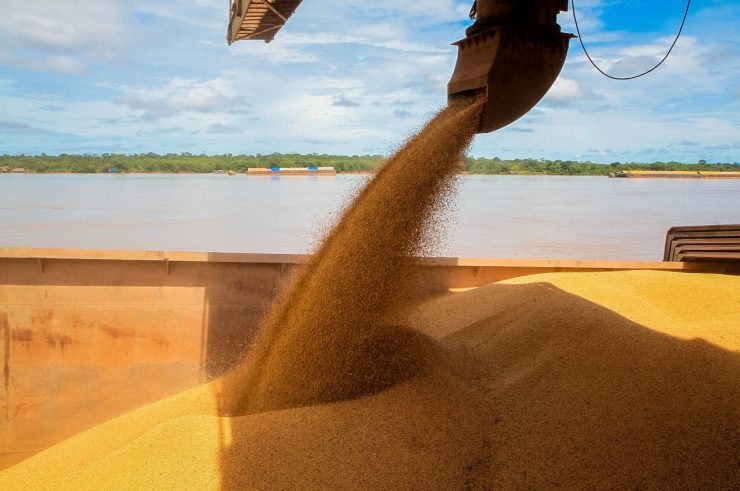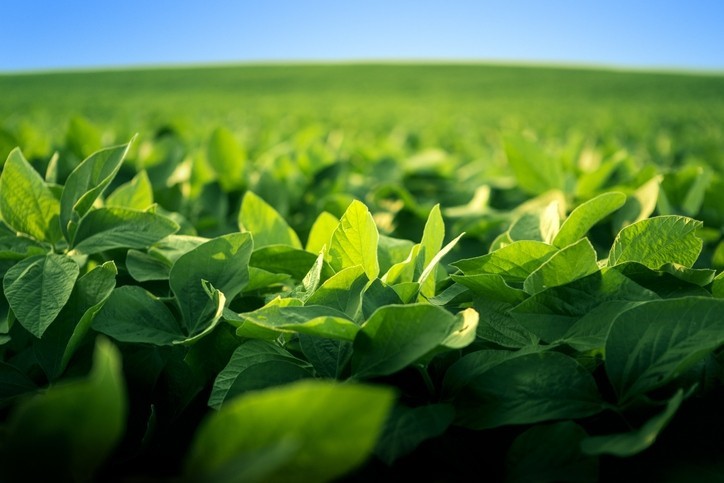Soybean seed piracy in Brazil generates losses of around R$10 billion per year for farmers, the seed industry, the grain processing sector and exporters. This is what an unprecedented study by CropLife Brasil (CLB), in partnership with Céleres Consultoria, released last Wednesday (02), indicates. The estimate is that pirated seeds occupy 11% of the area planted with the crop in Brazil, the equivalent of the total planting in Mato Grosso do Sul.

Photos: Disclosure/CropLife Brazil
The projection of increased revenue with the end of soybean seed piracy foresees R$2.5 billion for farmers, R$4 billion for the seed production sector, R$1.2 billion for the soybean meal and oil agribusiness and R$1.5 billion in agricultural exports.
In addition to the economic impact on producers, illegal practices also cause losses for the government and society. The study estimates that approximately R$1 billion in taxes could be lost over the next 10 years due to seed piracy.
CLB President Eduardo Leão highlighted the role of seeds in addressing the challenges facing the production sector. “The first is food security. Given the rapid pace of population growth, the planet will be required to substantially increase its supply of food and renewable energy, and this directly affects agriculture. The second is the climate challenge: producing more with less. In this context, seeds are one of the most relevant technologies,” he stressed.
Leão also emphasized that combating illegal practices is essential to ensuring crop productivity in the country. “Seed piracy threatens not only productivity in the field, but also the technological advancement of Brazilian agriculture. By failing to invest in certified seeds, the country loses competitiveness, sustainability and tax revenue. It is a practice where everyone loses, from the farmer to the agricultural exports,” he emphasized.
Productivity and quality

According to the survey, over the last 20 years, Brazilian soybean production has grown almost twice as much as the expansion of the planted area. This means that planting has grown on average by 3.5% per year, while production has increased by an average of 6% per year. According to the survey, this difference is the result of constant investment in technology and represents a productivity gain of 35% over the same period.
According to the analysis, the average productivity in Brazil was 59 bags per hectare in the 2023/2024 harvest and the use of pirated seeds resulted in an average loss of 17% of productivity or four bags per hectare.
The research also concludes that pirated seeds can reduce the quality of crops and grains. The result is a higher incidence of pests, weeds and diseases in crops, with a potential vector for the spread of invasive species, harmful to the environment and prohibited by law.
Anderson Galvão, CEO of Céleres, explained the strategic role of certified seeds in the agricultural chain and detailed the differences between them and non-certified seeds. “When we talk about non-certified seeds, this includes both saved (legal) seeds and pirated seeds, sold without legal or technological support. Today, 33% of the soybeans planted in Brazil use non-certified seeds. Of these, 11% are pirated seeds, which have not been regularized according to the regulatory framework,” he explained.
In addition to compromising the entire production system, pirated seeds can cause long-term environmental damage. “That is why it is so important for CropLife to quantify this data. We know that piracy exists, but we do not know the extent of the problem in terms of economic and fiscal losses,” added Galvão.
Technological advancement
 The survey also highlights that combating seed piracy can contribute to increased investment in seed varieties and technological advancements by R$900 million over the next 10 years, in addition to promoting the launch of new, more productive, resistant materials that require fewer chemical pesticides. “The potential revenue lost by the sector amounts to R$10 billion per year. This amount is divided between the seed industry, which loses revenue, producers and agribusiness, which lose competitiveness, and the government, which loses revenue. In addition, jobs are no longer created and investments in research and development are discouraged. This is a cycle that compromises the innovation ecosystem in the field,” reinforced Catharina Pires, director of Biotechnology and Germplasm at CLB.
The survey also highlights that combating seed piracy can contribute to increased investment in seed varieties and technological advancements by R$900 million over the next 10 years, in addition to promoting the launch of new, more productive, resistant materials that require fewer chemical pesticides. “The potential revenue lost by the sector amounts to R$10 billion per year. This amount is divided between the seed industry, which loses revenue, producers and agribusiness, which lose competitiveness, and the government, which loses revenue. In addition, jobs are no longer created and investments in research and development are discouraged. This is a cycle that compromises the innovation ecosystem in the field,” reinforced Catharina Pires, director of Biotechnology and Germplasm at CLB.
Rio Grande do Sul
In Rio Grande do Sul, the third largest agricultural chain in the country, soybean seed piracy is almost three times higher than the national average. In the state, the practice results in annual losses of R$1.1 billion.
According to the survey, each percentage point of certified seed purchased by the farmer results in almost 100 thousand more bags sold, an additional revenue of R$1.5T 40 million.
As a result of efforts to combat piracy, at the end of last year, the Court of Justice of São Paulo ordered the seizure of 1,400 tons of irregular soybean seeds in Santiago (RS), under suspicion of being destined for illegal trade. The estimated value of the seeds is almost R$1,500,000.00. It was the largest seizure of pirated seeds in history.
Reporting channel
 CropLife Brasil carries out actions to combat the piracy of agricultural inputs and has a reporting channel to receive information about illegal products, seeds and agricultural pesticides. Reports, which can be anonymous, are addressed by the association and forwarded to public authorities. According to data from the National Forum against Piracy and Illegality (FNCP), illegal agricultural inputs generate more than R$20.8 billion per year in Brazil.
CropLife Brasil carries out actions to combat the piracy of agricultural inputs and has a reporting channel to receive information about illegal products, seeds and agricultural pesticides. Reports, which can be anonymous, are addressed by the association and forwarded to public authorities. According to data from the National Forum against Piracy and Illegality (FNCP), illegal agricultural inputs generate more than R$20.8 billion per year in Brazil.
The association also leads a coalition of companies in the seed sector, in addition to entities such as the Brazilian Seed and Seedling Association (ABRASEM), the Brazilian Association of Soybean Seed Producers (ABRASS), among others, to strengthen the fight against this illegal practice.
In addition, it develops actions with the government, supports inspection with complaints to the Ministry of Agriculture and Livestock (Mapa) and promotes training for police agencies with the aim of qualifying and intensifying the fight against illegality in the countryside.
Seed piracy is one of the focuses of CropLife Brazil's Good Agricultural Practices campaign, launched in early 2025, which reinforces the importance of using certified seeds to guarantee productivity, sustainability and safety for the sector.






